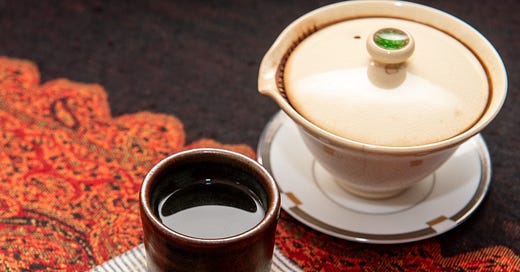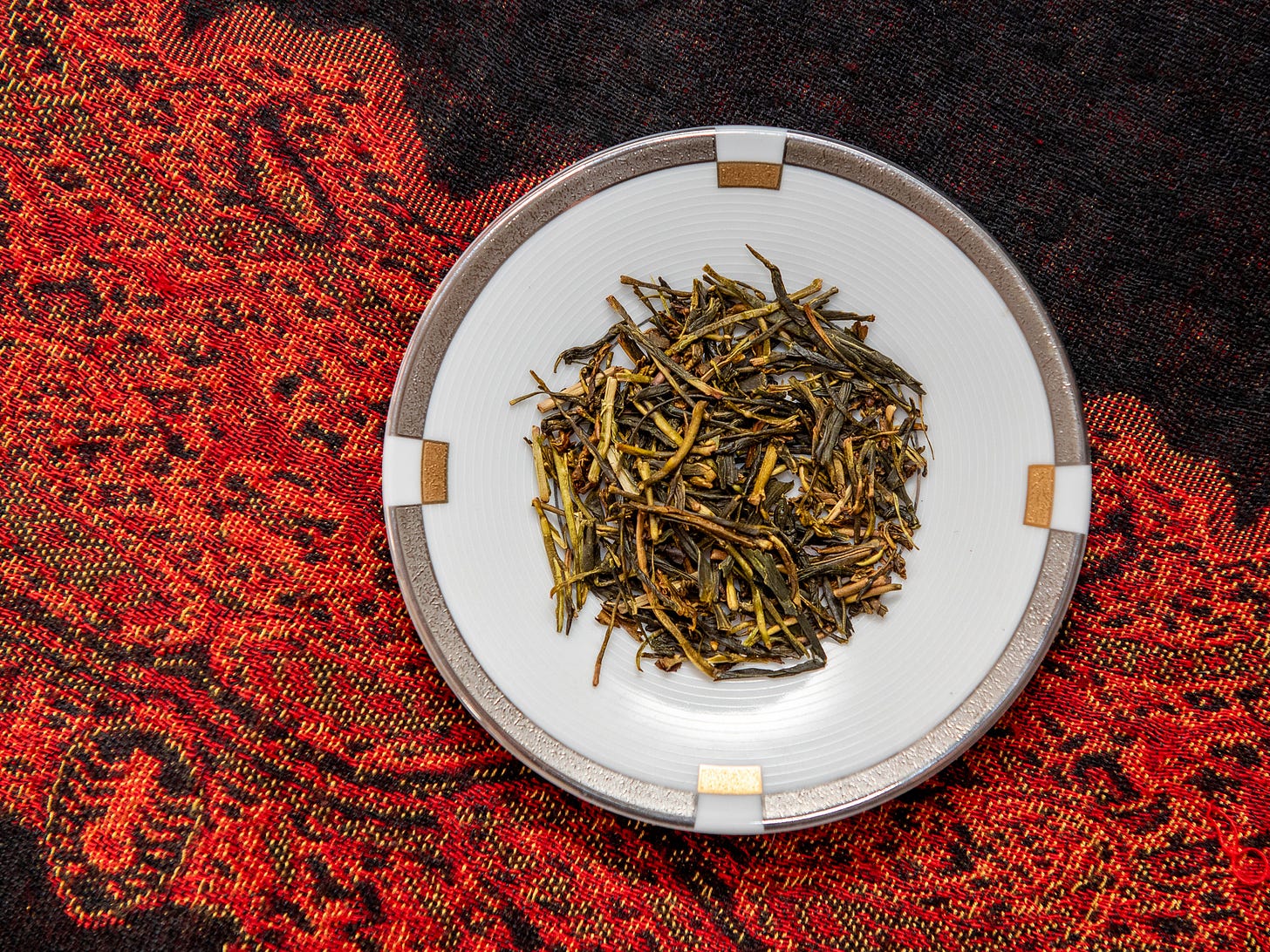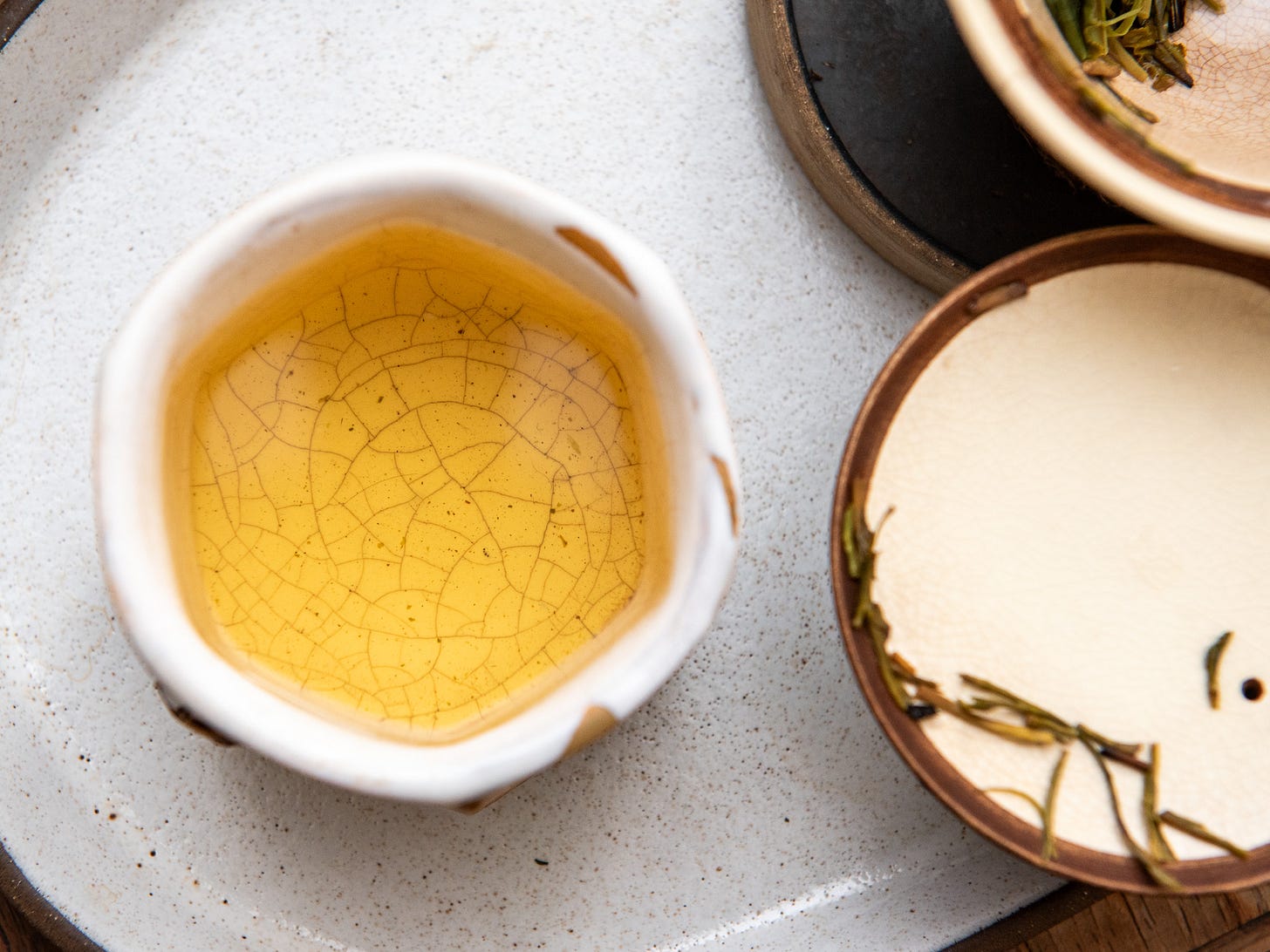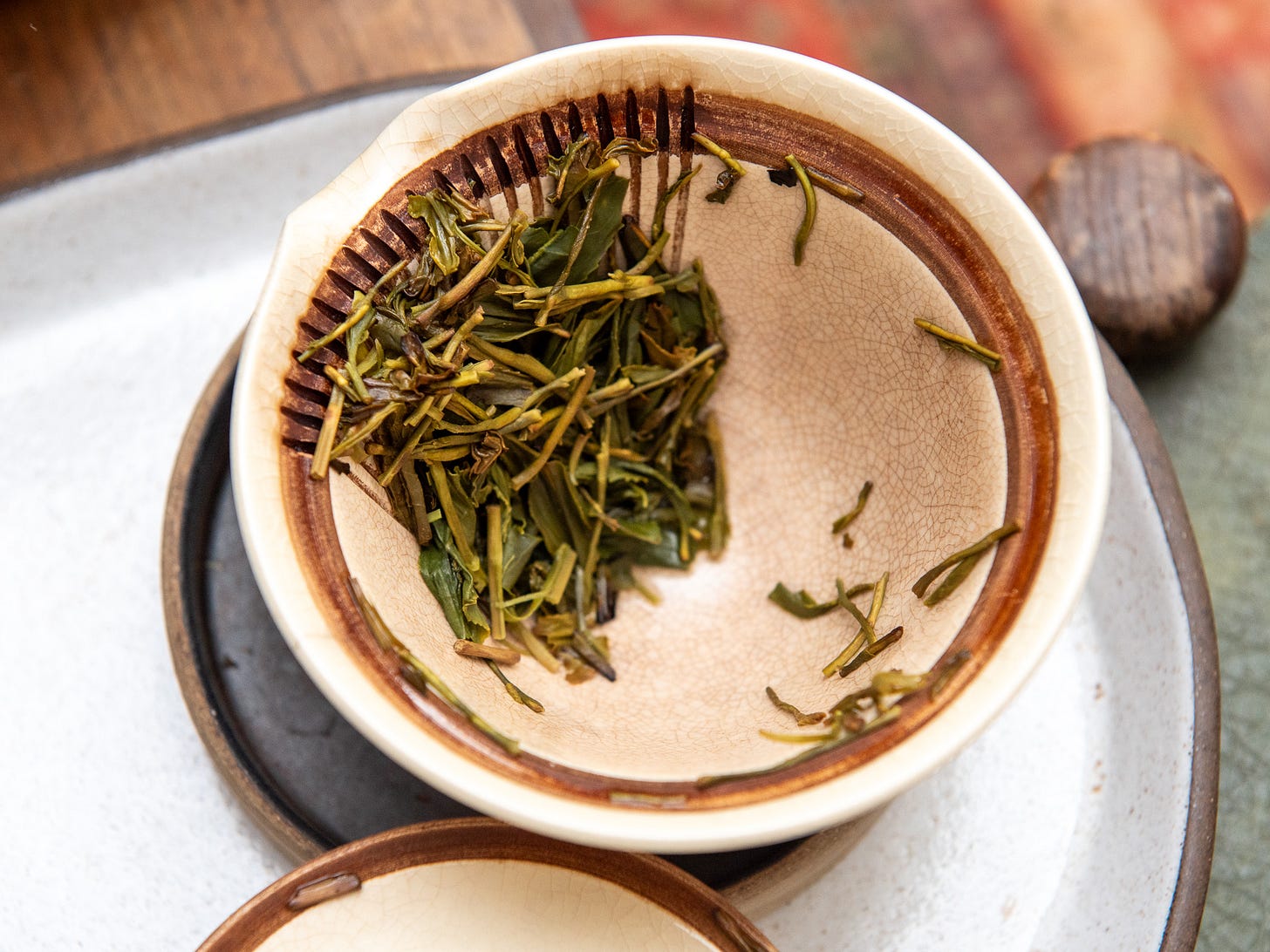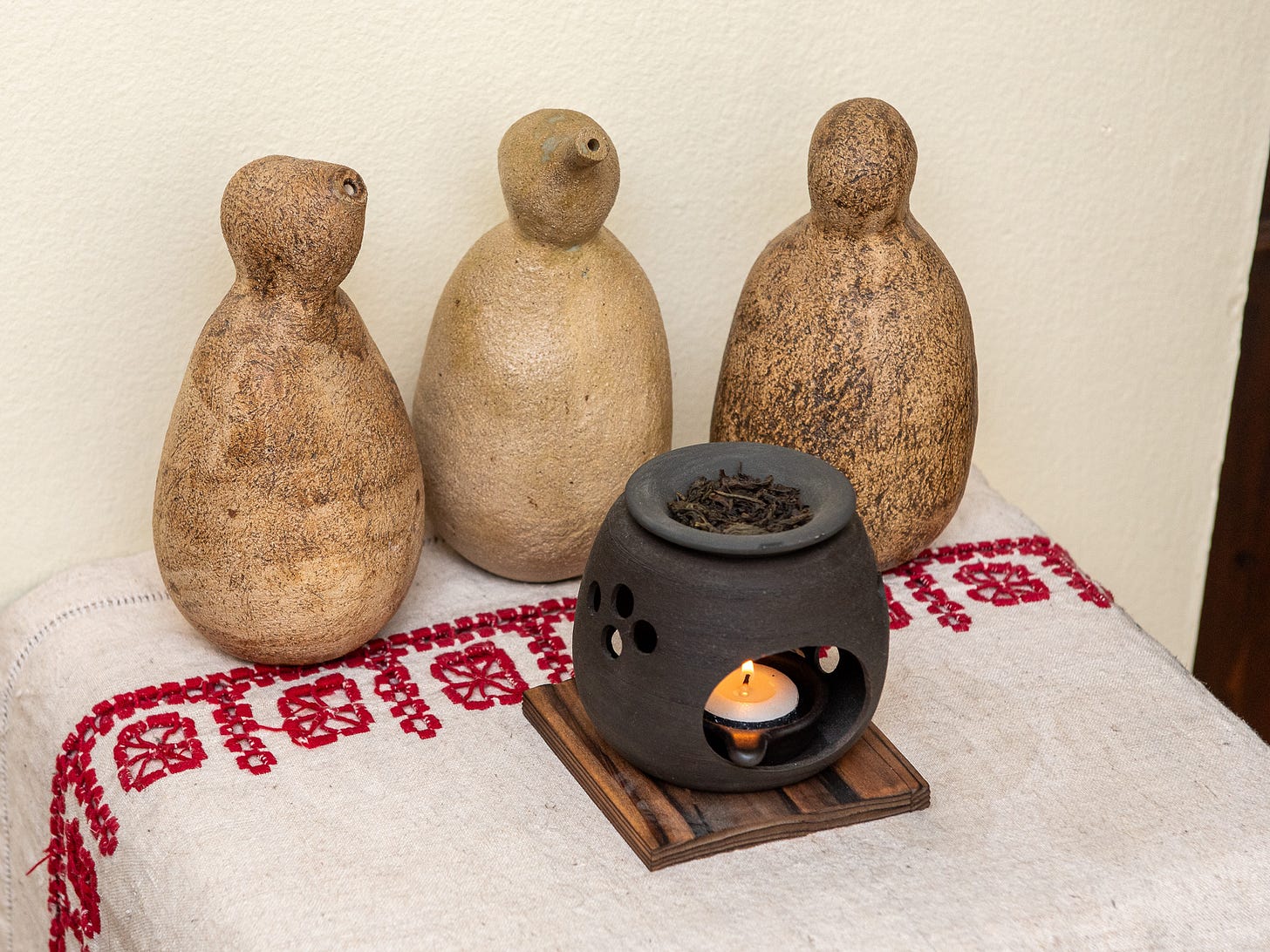Heaven smells like hojicha
The tea: Zairai heirloom hand roasted hojicha, sold by Kettl. $28 for 50g.
In my foyer I have a vented ceramic dome that encloses a tea candle. On top of the dome is a small dish where you place green tea leaves. As the flickering flame heats the dome, the leaves gently roast, wafting aromas of chestnut and barley through my apartment. I light the roaster if I have company over, or whenever I want a scent that transports me to some cozy farmhouse on a misty mountaintop. Hojicha is the drinkable version of this experience, and it tastes even better than that sounds.
This particular hojicha is a special one: roasted in tiny batches by hand over a kitchen stove, from a Japanese potter who makes it for fun. It’s at once light and deep, buttery and brisk, toasty yet mysteriously verdant. There’s a thick, mouth-coating body to the brew that you don’t find with most hojicha, but it’s also refreshing enough to sip without a second thought. Everyday roasting—of tea, coffee, meat, or anything else—treats the base material as a substrate for absorbing the nut and toffee flavors that develop over high heat. Artful roasting preserves and enhances a tea’s original vibrance, attenuating the fire to a particular set of leaves as a partnership rather than a coverup. I don’t need to drink a hojicha this good every day, but it’d be a charmed life if I did.
The source: I first met Zach and Minami Mangan of Kettl what feels like a million years ago in 2016, when we convened with some other New York sellers to lead a series of intensive tea classes. Zach has been my Japanese tea rabbi ever since, and Minami has made some of my favorite ceramic pieces in my collection. All three of our birthdays are around the same time, too, so we often celebrate over too much wine and Chinese food with other tea-business Scorpios (and one errant Libra). Kettl has a flagship store in Brooklyn that hosts tastings, a ceramics gallery, an impressive tea flavored dessert menu, a matcha-milling operation, and Minami’s kiln in the basement. There’s a lot going on, yet each of Kettl’s teas is carefully considered. It’s a wonderful place—IRL and online—to dive deeper into Japanese tea. It’s also where I scored my ceramic roaster.
To brew: One of the reasons I love drinking hojicha is that it’s easy to steep. Use boiling water and dose with your heart; the category is hard to screw up. 2 grams of this tea in a 150 milliliter shiboridashi (1g/75ml) for 90 seconds yields a mellow and rewarding brew with hay and popcorn notes. 4 grams for 60 seconds (1g/37ml) makes a potent and powerful cup that emphasizes the tea’s rich mouthfeel and persistent finish. Much of the fun of brewing your own looseleaf tea comes from playing with your inputs to see how they affect your outcomes. It’s cooking—a one-ingredient, one-pot soup that you can enjoy in 30 minutes or less. Will those SEO keywords make this blog show up in web searches? You can help by sharing it far and wide.
Behind the roast
There’s a recurring theme in the tea world of applying heavier or secondary processing to later harvests to make the most of not-as-good material. In Darjeeling, the prized first flush is only lightly oxidized to maintain the delicate, airy characteristics of spring leaves that grow slowly at high elevation. By the time of the second flush later in the season, the tea plant has already expended most of its stored energy from winter dormancy, and the leaves mature more quickly. Producers treat this harvest with heavier oxidation to make a more traditional black tea, effectively adding flavors during processing that aren’t innate to the fresh leaf. In China, most flower-scented teas are made with less expensive, fast growing summer harvests. The aroma of these high yield leaves isn’t as complex as early spring harvests, so the flowers offer a helpful assist. In Japan, early season harvests are used for premium productions like sencha and gyokuro. Later season leaves and twigs are coarser and heavier in flavor, and are the ideal base for a warming roast.
Keep reading with a 7-day free trial
Subscribe to Leafhopper to keep reading this post and get 7 days of free access to the full post archives.


